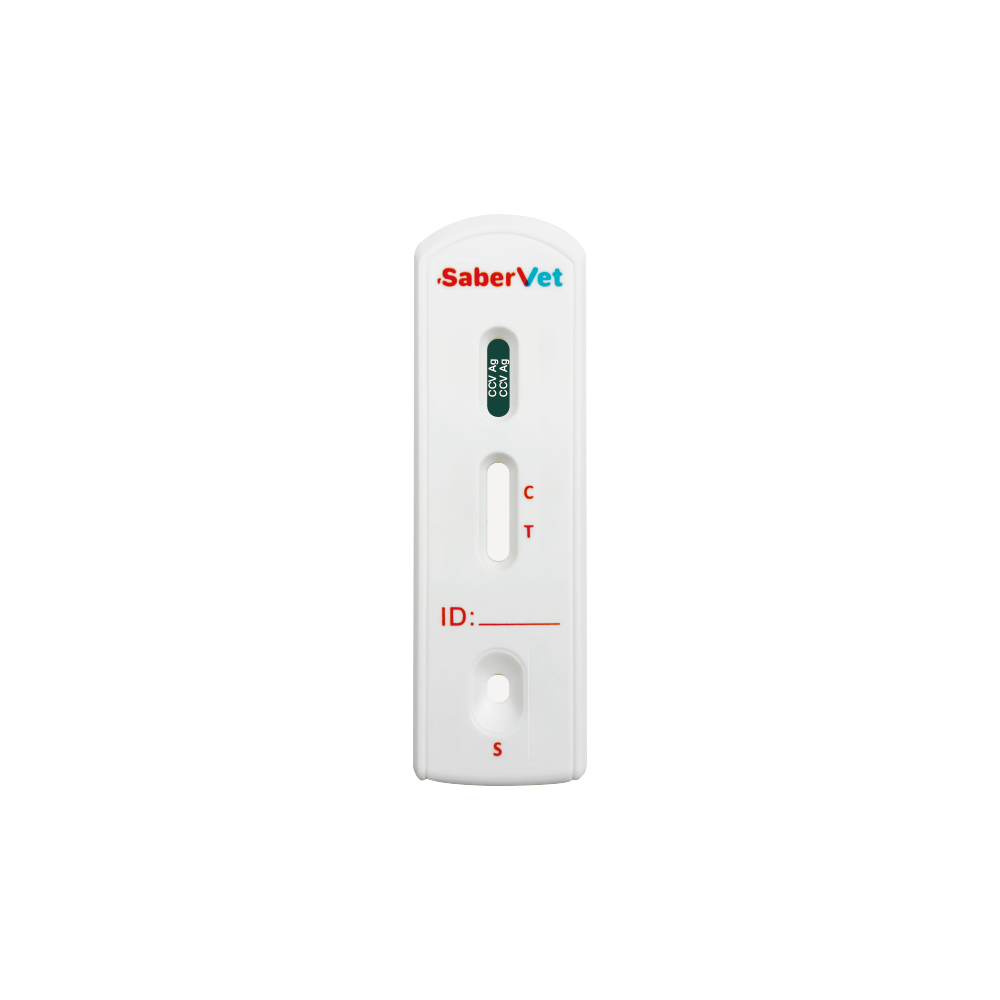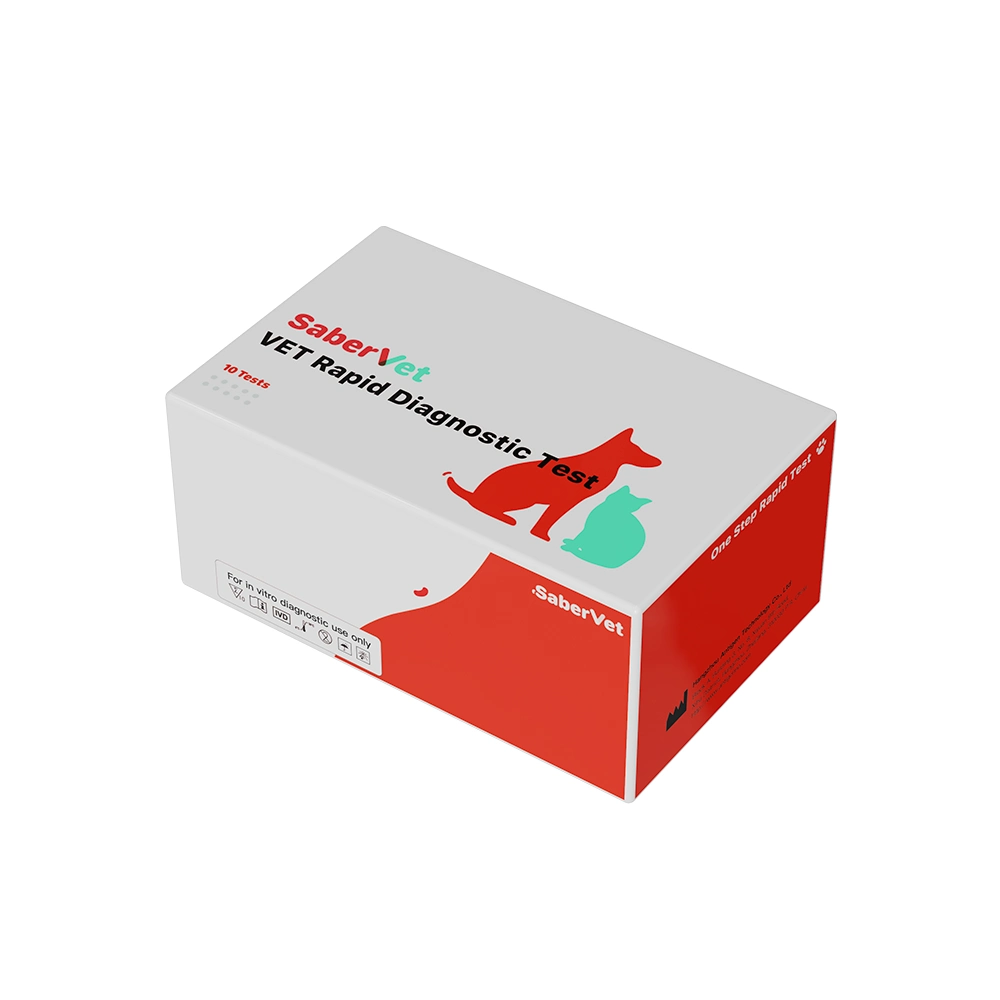Canine Coronavirus (CCV) infection is a common canine infectious disease caused primarily by Canine Coronavirus. The virus is usually spread through contact with infected feces or infected environments, and is especially easy to spread when endemic in dog populations Severe illness may occur in puppies or dogs with compromised immune systems.
Below is a detailed description of the symptoms, diagnosis and treatment of canine coronavirus infection:
Symptoms of Coronavirus
1.Mild symptoms:
Diarrhea: the dog may exhibit mild diarrhea and the stools may be slightly soft or yellow in color.
Loss of appetite: The dog may lose interest in food or eat less.
Mild vomiting: Occasionally, mild vomiting may occur and usually does not last long.
2.Moderate symptoms:
Increased diarrhea: stools may become more watery with foam or mucus.
Exacerbation of vomiting: Vomiting increases in frequency and may be accompanied by food residue or yellow bile-like material.
Mild dehydration: As a result of the diarrhea and vomiting, the dog may show mild signs of dehydration such as dry mouth.
3.Severe symptoms:
Severe diarrhea: frequent watery or bloody stools may occur, even with a foul smell.
Severe vomiting: Increased frequency of vomiting and Bleeding or brown vomitus may be present.
High Fever: Body temperature is significantly elevated above the normal range.
Significant dehydration: The dog may show signs of dehydration such as sunken eyes, dry and cracked lips, and loss of skin elasticity.
Weakness or coma: In severe cases, the dog may appear weak or comatose due to dehydration or other complications.
Diagnosis of Coronavirus
Coronavirus testing infection relies heavily on clinical signs and laboratory testing methods:
Clinical manifestation of coronavirus testing: The veterinarian will make a preliminary diagnosis based on the dog’s symptoms and signs.
Laboratory testing of coronavirus test: including immunofluorescence antibody technology (IFA), PCR (polymerase chain reaction) and ELISA (enzyme-linked immunosorbent assay), used to detect coronavirus antibody levels or nucleic acids in dogs.
On-site Diagnosis: SaberVet coronavirus test kit can be used in veterinary clinics, pet colonies and at home to collect fresh feces from pets on-site and diagnose canine coronavirus infection within 10 minutes.
One of Antigenne’s pet diagnostic products in particular is our coronavirus Antigen Rapid Test. our rapid test kits offer the following significant benefits:
Rapid Results: Just as rapid results are key in coronavirus testing in India, our tests provide accurate results in less than 10 minutes, significantly reducing wait times and enabling pet owners and veterinarians to make quick treatment decisions.
Ease of use: Just as the ease of use of the coronavirus testing in delhi has increased its popularity, Antigenne’s testing process is simple and easy to perform, requiring no complicated equipment or specialised skills, making it easy for pet owners to complete the test from the comfort of their own home and keep up-to-date with their pet’s health.
Highly Accurate: Just as the Coronavirus test in India is highly accurate, Antigenne’s test uses advanced antigen detection technology to ensure that results are accurate and more reliable than traditional methods.
Affordable: The economic benefits of coronavirus testing in India demonstrate the importance of cost-effectiveness, and Antigenne’s rapid tests offer the same cost-effective benefits, reducing the financial burden on pet owners and veterinarians.
Portability: Coronavirus testing in India generally requires portability, and Antigenne’s products are designed to be lightweight and easy to carry around, so that testing can be done at any time, whether at home or on the go, to safeguard your pet’s health.
Treatment Options of Coronavirus
There is no specific treatment to completely eliminate Canine Coronavirus, but the following measures can be taken to relieve symptoms and provide supportive care:
Fluid Replacement: Maintain fluid balance and prevent dehydration through intravenous fluids or oral fluids.
Antibiotic therapy: to prevent or treat secondary infections.
Symptomatic treatment: e.g. control fever, stop vomiting, stop diarrhea.
Nutritional support: Provide easily digestible, high-energy foods or provide nutritional support through the intravenous route.
Other supportive treatments: including the use of painkillers and anti-inflammatory drugs to relieve symptoms and keeping the environment clean and comfortable.
Preventive measures include regular vaccination, keeping the kennel and environment clean and hygienic, and avoiding contact with infected dogs or the environment. Early medical attention and veterinary care is very important, especially if severe symptoms or complications occur.
The creation of SaberVet not only reinforces the company’s commitment to quality and innovation but also serves as a testament to its unwavering dedication to improving animal health and welfare.Together, we can make a difference. Contact Antigenne now and let’s unlock the future of animal health.













